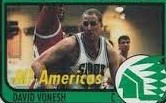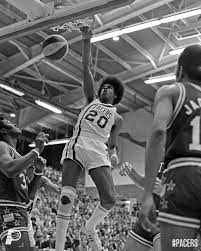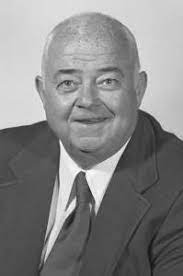Bruce Stewart only spent 7 years as head coach at Middle Tennessee but he certainly made the most of it. In addition to winning almost 2/3 of his games (141-75 record), he won 3 OVC regular season titles, 2 conference tourney titles, made 3 NCAA tourneys, and even pulled off an upset of Florida State in the 1989 NCAA tourney before losing to Virginia. HoopsHD’s Jon Teitel got to chat with Bruce a long time ago and is proud to present this never-before-published interview. Today marks the 11th anniversary of Bruce’s passing on May 23, 2011, so we take this time to honor his life/legacy.
There were no recreation centers/playgrounds where you grew up in Roswell, GA, so your dad Richard built you a court in the backyard with his bare hands: what impact did that court have on the rest of your life, and how popular did you become in the neighborhood after the court? I spent every day after school shooting baskets out on that court and we later put up lights so we could play at night as well. I kept shooting even after the court iced over in the winter. It was the center of the neighborhood and we had a lot of knockdown, drag-out battles.
In 1971 you were named Georgia high school tourney MVP after leading Roswell High School to the Class AA state title: what did it mean to you to win the title, and how far did you think you could go as a player? It meant a lot to win the title: that was what we had worked for all year. I just wanted to move on and play college basketball no matter where I went to school.
In the 1985 OVC tourney as coach at Middle Tennessee you had a 3-PT win over Murray State, 2-PT win over Tennessee Tech, and then a 3-PT win over Youngstown State: how was your blood pressure doing by the end of that week?! That was special: it was my very 1st year as coach at Middle Tennessee. We had great chemistry by the end of the year as everyone bought into our system. It was rewarding to see the kids work hard.
In the 1985 NCAA tourney Brad Daugherty had 25 PTS/11 REB in a win by UNC: what was it like to face Dean Smith in March? It was scary: I did not sleep much the night before! They were a really good team…but we were only down 2 PTS with 10 minutes left.
What are your memories of the 1987 NCAA tourney (David Rivers scored 27 PTS in a win by Notre Dame)? Rivers, Rivers, Rivers!!! His penetration really killed us that night: he even ended up haunting me later on in the CBA!
Take me through the 1988 NIT:
Chris Rainey scored 20 PTS in a 5-PT win over Tennessee despite injuring his knee: how big a deal was it to beat your in-state rival? The biggest thing to our fans was beating Tennessee: they were the in-state big-boy with some great players. We had a sellout crowd and people hanging from the rafters.
Ty Baynham scored 24 PTS in a 10-PT win over Georgia: was it extra-special to beat the big school from your home state? It was. Georgia coach Hugh Durham was a really good friend of mine and he had some future NBA players.
Randy Henry had 34 PTS/12 REB in a 9-PT loss to BC: were you disappointed that you were running out of SEC teams to beat up on?! The most physical teams back then were actually Big East teams. Dana Barros was good enough to help them win despite Randy’s spectacular game.
In 1989 you were named OVC COY: what did it mean to you to win such an outstanding honor? It is always rewarding to win awards…but it just means that my assistant coaches recruited well and our players worked hard.
Take me through the 1989 NCAA tourney:
Freshman Mike Buck scored a career-high 26 PTS in 22 minutes while have a perfect shooting night (6-6 from 1-PT land, 1-1 from 2-PT land, and 6-6 from 3-PT land) in a win over Florida State: how was Buck able to play so well as a freshman, and was that the best shooting performance you have ever seen? Randy had a big game as well (26 PTS/10 REB). I think that we were more physical than them inside with our post men. Mike had 1 of the best shooting performances I have ever witnessed.
Richard Morgan scored 33 PTS in a win by Virginia: did the Cavaliers just have a more talented team, and what was the feeling like in your locker room afterwards? We were disappointed. We did not get back to the hotel after the Florida State game until about 4AM so we tried but were a step slow.
You later won 3 state titles as coach at Northwest Florida State: how have you been able to be so successful as a coach? The key is recruiting: you cannot do it without thoroughbreds. We have had great players come to Florida from several nearby states.
In 2010 you had to step aside after being diagnosed with a brain tumor: how are you coping with the tumor? I just came out of the doctor’s office: it is an adjustment for me because he is the coach and I have to do what he says! I finished radiation/chemotherapy so we are just praying, praying, praying. It is hard to predict if I will ever coach again. I would like to say yes…but my priorities have changed so I would like to live 1st.









